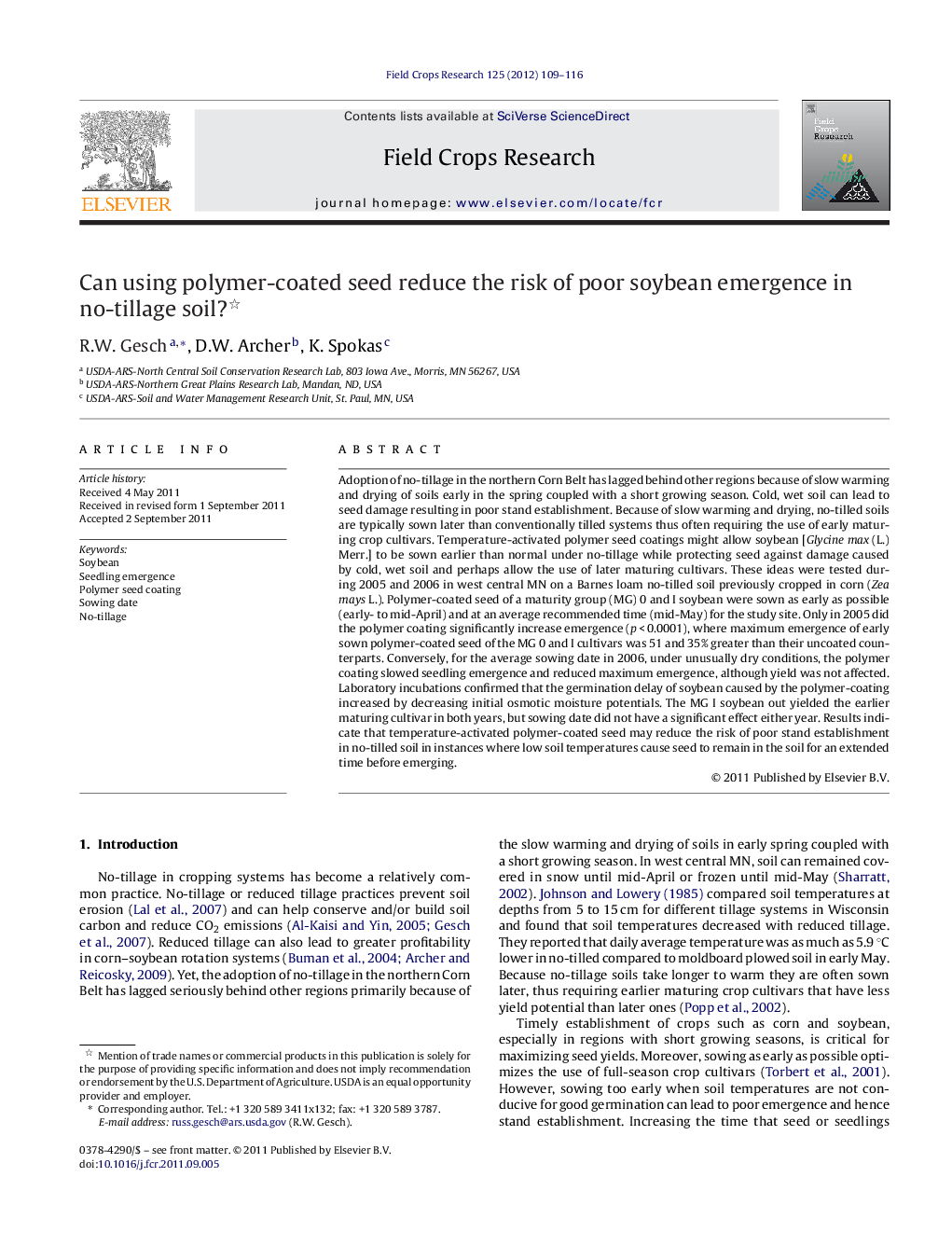| Article ID | Journal | Published Year | Pages | File Type |
|---|---|---|---|---|
| 4510515 | Field Crops Research | 2012 | 8 Pages |
Adoption of no-tillage in the northern Corn Belt has lagged behind other regions because of slow warming and drying of soils early in the spring coupled with a short growing season. Cold, wet soil can lead to seed damage resulting in poor stand establishment. Because of slow warming and drying, no-tilled soils are typically sown later than conventionally tilled systems thus often requiring the use of early maturing crop cultivars. Temperature-activated polymer seed coatings might allow soybean [Glycine max (L.) Merr.] to be sown earlier than normal under no-tillage while protecting seed against damage caused by cold, wet soil and perhaps allow the use of later maturing cultivars. These ideas were tested during 2005 and 2006 in west central MN on a Barnes loam no-tilled soil previously cropped in corn (Zea mays L.). Polymer-coated seed of a maturity group (MG) 0 and I soybean were sown as early as possible (early- to mid-April) and at an average recommended time (mid-May) for the study site. Only in 2005 did the polymer coating significantly increase emergence (p < 0.0001), where maximum emergence of early sown polymer-coated seed of the MG 0 and I cultivars was 51 and 35% greater than their uncoated counterparts. Conversely, for the average sowing date in 2006, under unusually dry conditions, the polymer coating slowed seedling emergence and reduced maximum emergence, although yield was not affected. Laboratory incubations confirmed that the germination delay of soybean caused by the polymer-coating increased by decreasing initial osmotic moisture potentials. The MG I soybean out yielded the earlier maturing cultivar in both years, but sowing date did not have a significant effect either year. Results indicate that temperature-activated polymer-coated seed may reduce the risk of poor stand establishment in no-tilled soil in instances where low soil temperatures cause seed to remain in the soil for an extended time before emerging.
► A temperature-activated polymer seed coating was tested for its ability to reduce poor soybean stand establishment in no-tilled soil. ► The seed coating significantly improved stand establishment during one year of the study when soybean was planted 5 weeks earlier than normal. ► The polymer coating might negatively impact soybean stands if planted at a normal or late time under dry soil conditions. ► The coating may reduce the risk of poor soybean stands in no-tillage soil when seed is sown early and resides in the soil for an extended time before emerging.
